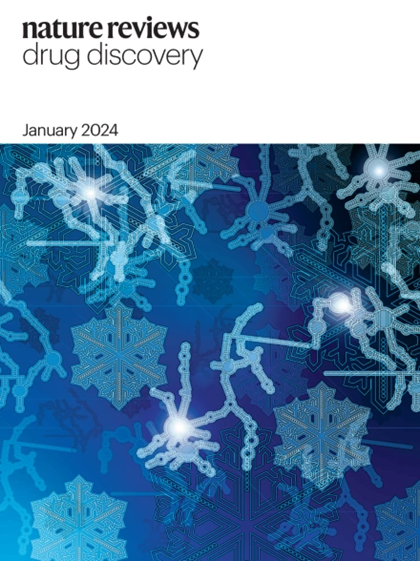The aryl hydrocarbon receptor: a rehabilitated target for therapeutic immune modulation
IF 101.8
1区 医学
Q1 BIOTECHNOLOGY & APPLIED MICROBIOLOGY
引用次数: 0
Abstract
The aryl hydrocarbon receptor (AHR) is a ligand-activated transcription factor originally identified as the target mediating the toxic effects of environmental pollutants including polycyclic aromatic hydrocarbons (PAHs), polychlorinated biphenyls (PCBs) and dioxins. For years, AHR activation was actively avoided during drug development. However, the AHR was later identified as an important physiological regulator of the immune response. These findings triggered a paradigm shift that resulted in identification of the AHR as a regulator of both innate and adaptive immunity and outlined a pathway for its modulation by the diet, commensal flora and metabolism in the context of autoimmunity, cancer and infection. Moreover, the AHR was revealed as a candidate target for the therapeutic modulation of the immune response. Indeed, the first AHR-activating drug (tapinarof) was recently approved for the treatment of psoriasis. Clinical trials are underway to evaluate the effects of tapinarof and other AHR-targeting therapeutics in inflammatory diseases, cancer and infections. This Review outlines the molecular mechanism of AHR action, and describes how it regulates the immune response. We also discuss links to disease and AHR-targeting therapeutics that have been tested in past and ongoing clinical trials. The aryl hydrocarbon receptor (AHR) mediates the toxic effects of environmental pollutants and regulates innate and adaptive immune responses. This Review discusses how, in the past, AHR activation was avoided during drug development, but now the AHR is being targeted for treating inflammation, cancer and infectious diseases.


芳烃受体:治疗性免疫调节的修复靶点
芳烃受体(aryl hydrocarbon receptor, AHR)是一种配体激活的转录因子,最初被认为是介导多环芳烃(PAHs)、多氯联苯(PCBs)和二恶英等环境污染物毒性作用的靶标。多年来,AHR激活在药物开发过程中一直被积极避免。然而,AHR后来被确定为免疫反应的重要生理调节剂。这些发现引发了一种范式转变,导致AHR被确定为先天免疫和适应性免疫的调节剂,并概述了其在自身免疫、癌症和感染背景下由饮食、共生菌群和代谢调节的途径。此外,AHR被揭示为免疫反应治疗性调节的候选靶点。事实上,第一个ahr激活药物(tapinarof)最近被批准用于治疗牛皮癣。临床试验正在进行中,以评估tapinarof和其他ahr靶向治疗在炎症性疾病、癌症和感染中的效果。本文综述了AHR作用的分子机制,并阐述了其如何调节免疫反应。我们还讨论了在过去和正在进行的临床试验中测试的疾病和ahr靶向治疗的联系。
本文章由计算机程序翻译,如有差异,请以英文原文为准。
求助全文
约1分钟内获得全文
求助全文
来源期刊

Nature Reviews. Drug Discovery
医学-生物工程与应用微生物
CiteScore
137.40
自引率
0.30%
发文量
227
期刊介绍:
Nature Reviews Drug Discovery is a monthly journal aimed at everyone working in the drug discovery and development arena.
Each issue includes:
Highest-quality reviews and perspectives covering a broad scope.
News stories investigating the hottest topics in drug discovery.
Timely summaries of key primary research papers.
Concise updates on the latest advances in areas such as new drug approvals, patent law, and emerging industry trends and strategies.
 求助内容:
求助内容: 应助结果提醒方式:
应助结果提醒方式:


